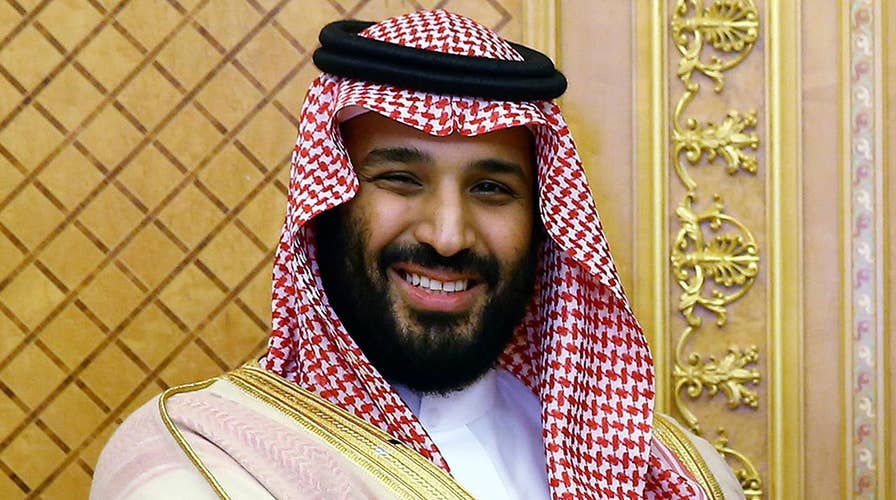World watching after Saudi crown prince ousts top officials
Sweep viewed as show of force by Mohammed bin Salman; Connor Powell reports.
Saudi Arabia has a new crown prince and Mohammed bin Salman is shaking things up in the kingdom. This is good for the Saudis, for America and for the Middle East as a whole.
Saudi Arabia has been our ally for a long time. We accepted some pretty major downsides to our relationship with the oil-rich nation because we really needed a friend in the Organization of Petroleum Exporting Countries (OPEC) and in the region.
It’s nice to note that the new heir to the throne is changing some of the things that made it tough to defend our alliance with his country. He is only 32 and is trying to pull a very conservative nation into the future. This is happening on the economic, cultural and foreign policy fronts.
One of the most jarring things thus far was lifting the ban on women driving. This was such a stark example of patriarchal oppression that removing it shows good faith and the guts to go against the old guard. There have also been more jobs made available to women and the overall trend seems to be moving toward more equality.
On the economic front, there is a major development project called NEOM to build a new city on the Red Sea coast and expand the Saudi economy beyond its dependence on oil. The Saudis are committing $500 billion and inviting in investors to turn this into a viable enterprise zone.
The Saudi government has also started a major anti-corruption push to stop the diversion of resources. This served to round up potential rivals of the crown prince and those who may oppose the modernization efforts.
In the area of national security and foreign policy, we have seen some very promising and helpful moves. They have caused a lot of turmoil, but since there were so many bad things going on, change was necessary to move forward.
The ball really got rolling after President Trump’s trip to Riyadh, where he met with many leaders of Muslim nations. While some arms deals and other agreements came out of the trip, it also seemed there was some sort of back channel agreement to move on some major difficult issues.
First was the blockade against Qatar by some of the Gulf Arab States. There are many reasons given for why this happened, and the disputes between these countries are longstanding. But it struck a blow against Qatari terror financing and that is a good thing. The diplomatic disruption has our State Department in a tizzy trying to find any way to resolve this, but thus far President Trump has been satisfied to let it play out.
We have also seen a very strong reaction to the continued bad actions of Iran and its proxy army Hezbollah in Lebanon and elsewhere in the region.
While visiting Saudi Arabia, Lebanese Prime Minister Saad Hariri resigned Nov. 4 over the encroachment of Iran and Hezbollah into the running of the country. He returned to Lebanon Nov. 21, put his resignation on hold and then made a private visit to France.
Also on Nov. 4, an Iranian-built missile was launched from Yemen at the Saudi capital and shot down before it hit. This led to a statement from the Saudis that Lebanon and Iran had effectively declared war on them.
The Saudis recalled their citizens from Lebanon and it really looked like a shooting war could erupt. That seems to have passed, but Hezbollah and Iran are certainly on notice that their bad actions will not be ignored.
There has also been some welcome help in the seemingly never-ending Israeli-Palestinian peace talks. Crown Prince Salman summoned Palestinian President Mahmoud Abbas to Riyadh and put the screws to him saying he must go along with President Trump’s new initiative. The only way this has a prayer of working is if the rest of the Gulf States pressure the Palestinians. This is a great way to get that started.
These are all steps in a positive direction, but I’m not suddenly a Saudi cheerleader. This requires a “trust, but verify” Reaganesque approach from the U.S. side.
We should applaud the Saudi moves and work with them to keep this momentum going. Change in the Middle East has to come from the people there. The Saudis are the keepers of the holy sites and a huge influence on everyone else. It is in all our interests to support their progress.

